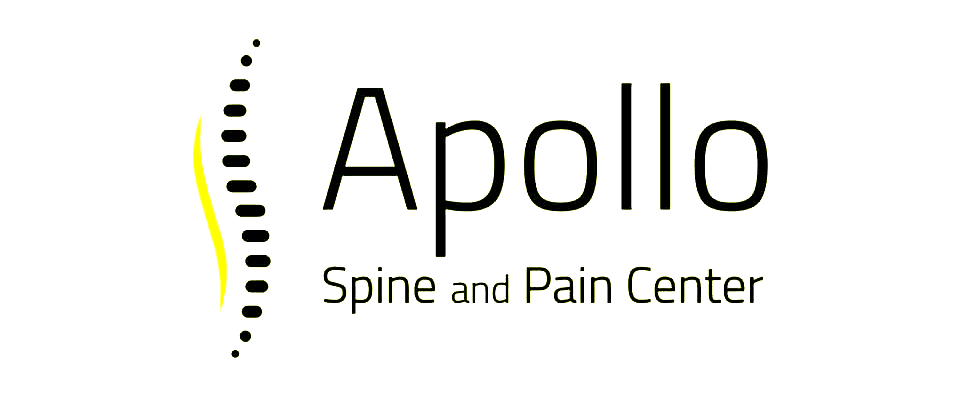Innovative Pain Management Techniques for Post-Herpetic Neuralgia Relief
Post Herpetic Neuralgia (PHN) presents a pervasive challenge for many individuals long after the shingles virus has subsided. Characterized by nerve pain that can persist for months or even years, PHN can severely affect one's daily functioning and overall quality of life. As specialists in pain management, we’re deeply committed to offering relief and guidance through the latest interventional techniques uniquely tailored to combat the persistent pain caused by PHN.
Our approach is grounded in a deep understanding of the mechanisms behind nerve-related pain and the specific distress that PHN inflicts. We leverage an arsenal of advanced pain management options designed to mitigate pain and address the underlying nerve changes contributing to this condition.
Recognizing the individuality of pain perception and response, our treatments are carefully adjusted to match the specific needs and conditions of our patients. This patient-centric focus ensures that each strategy targets the symptoms and enhances the overall quality of life. With an emphasis on innovation and personalized care, we strive to transform the experience of those dealing with PHN.
Understanding Post Herpetic Neuralgia and Its Impact
Post Herpetic Neuralgia (PHN) frequently emerges as a formidable complication following an outbreak of shingles, which is caused by the varicella-zoster virus—the same virus responsible for chickenpox in children.
In PHN, the nerves damaged by the viral outbreak continue to send erratic and exaggerated pain signals to the brain long after the visible signs of shingles have resolved. This neural miscommunication can lead to chronic pain that persists for months or, in some cases, years. The pain characteristic of PHN is often described as burning, stabbing, or throbbing, severely disrupting daily activities and diminishing the quality of life.
The impact of PHN extends beyond physical pain, potentially leading to sleep disturbances, changes in mood, and a decrease in social interaction as patients may avoid activities that exacerbate their pain. Understanding the comprehensive reach of this condition is crucial in managing it effectively and sympathetically.
Our approach is geared toward alleviating the pain and addressing the broader spectrum of complications that PHN can cause, ensuring comprehensive care for our patients.
Top Interventional Pain Management Techniques for PHN
At our clinic, we emphasize the use of advanced interventional pain management techniques as a cornerstone of PHN treatment. These techniques are designed to target the pain at its source, providing relief where other conventional methods may falter. Here are some of the leading approaches we utilize:
1. Nerve Blocks: By injecting an anesthetic directly into the area around the affected nerves, nerve blocks can provide temporary yet immediate relief from the intense pain of PHN, allowing patients a respite from the chronic discomfort they experience.
2. Spinal Cord Stimulation (SCS): This treatment involves placing a small device near the spinal cord which emits electrical pulses that interfere with the pain signals being sent to the brain. SCS has shown promising results in reducing pain intensity in PHN patients whose pain has not responded to other treatments.
3. Topical Treatments: Capsaicin patches and lidocaine patches are applied directly to the skin over the painful area. These patches help numb the pain and are often used in combination with other treatments to improve outcomes.
4. Radiofrequency Ablation: A minimally invasive procedure that uses heat generated from radio waves to target specific nerves, potentially reducing pain by disrupting the pain signals sent to the brain.
Each of these techniques offers potential relief, and depending on individual patient cases, we may recommend a single approach or a combination of treatments to manage their PHN effectively. Our goal is always to tailor each treatment plan to fit the unique needs of each patient, maximizing relief and restoring function.
Lifestyle Adjustments and Supportive Therapies for Enhanced PHN Management
Managing Post Herpetic Neuralgia (PHN) extends beyond medical treatments to include lifestyle adjustments and supportive therapies that play a significant role in overall pain management strategies. Integrating these therapies into daily routines can significantly enhance quality of life and help individuals regain control over their pain management. Key adjustments include:
1. Stress Management: Techniques such as meditation, deep breathing exercises, and yoga can reduce stress, which often exacerbates pain symptoms. Stress management not only aids in controlling pain but also improves emotional well-being.
2. Physical Activity: Tailored exercise programs can help maintain mobility and reduce pain. Activities such as walking or gentle stretching exercises can increase blood flow and aid in the natural production of endorphins—body's natural painkillers.
3. Dietary Modifications: A balanced diet rich in vitamins and antioxidants can aid in nerve repair and overall health. Some patients find relief by incorporating anti-inflammatory foods that can potentially reduce nerve irritation.
4. Regular Sleep Patterns: Adequate sleep is essential for pain management. Creating a calm and comfortable sleep environment and maintaining a regular sleep schedule can help improve sleep quality, which in turn aids in pain reduction.
By incorporating these lifestyle changes and supportive therapies, our patients can enhance their PHN management and improve their day-to-day living, making a substantial difference in their journey towards pain relief and recovery.
What to Expect: Long-Term Management and Monitoring of PHN
Long-term management of Post Herpetic Neuralgia (PHN) demands an ongoing commitment to both professional medical reviews and personal management strategies. We understand that PHN can be unpredictable, with periods of remission and flare-ups. Therefore, continuous monitoring and adaptable treatment plans are imperative for sustained management.
Our team remains proactive in the long-term care of our PHN patients by offering regular follow-up appointments to monitor progress, adapt pain management plans as needed, and provide the newest advancements in pain management technology.
We encourage our patients to be active participants in their treatment plans—keeping detailed pain diaries, noting what exacerbates or alleviates their pain, and maintaining open lines of communication with our team.
Patients can also expect ongoing education about their condition and the latest research findings relevant to their case. This empowerment through knowledge allows for better self-management and sets a clearer path towards managing expectations and outcomes.
Innovative Therapies for Post-Herpetic Neuralgia Relief
As we continue to explore the possibilities in
pain management in Cumming, GA, our mission remains the same: to provide the utmost care, innovative treatments, and comprehensive support to all our patients. If you are experiencing Post Herpetic Neuralgia, reach out to Apollo Spine and Pain Center. Let us guide you through an individually tailored treatment plan designed to bring relief and reclaim the quality of life you deserve!












